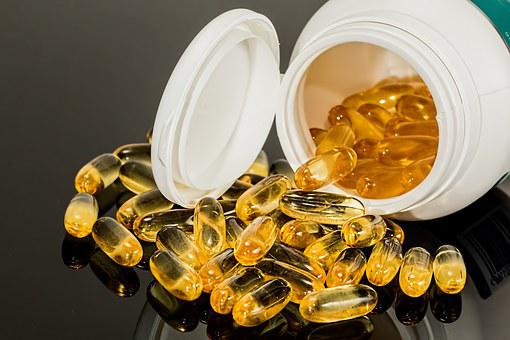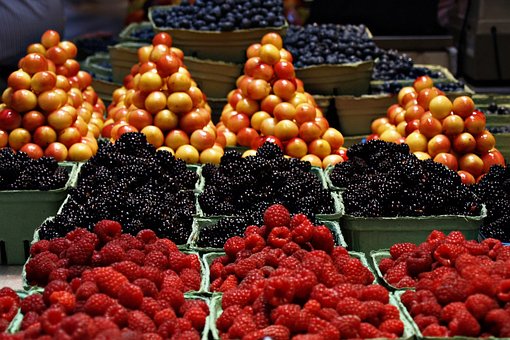Physical Address
304 North Cardinal St.
Dorchester Center, MA 02124
Physical Address
304 North Cardinal St.
Dorchester Center, MA 02124
You’ve probably already been exposed to this piece of advice: Maintain your well-being by consuming the appropriate proportions of vitamins. But which ones exactly, you might be wondering, and should I take a supplement or get my nutrients from the food I eat?
The optimal course of action is to maintain a balanced diet. However, taking supplements may be an effective approach to compensate for any inadequacies.

Antioxidants
This category includes vitamin A, commonly known as retinol, beta carotene, and other carotenoids, vitamin C, and vitamin E. Free radicals are tiny particles created by the body that can destroy cells.
Antioxidants have been shown to reduce the risk of certain health problems as well as slow the aging process. Researchers are also of the opinion that they help strengthen the immune system, which is your body’s primary line of defense against infectious agents.
Antioxidants include:
Beta-carotene. It is converted into vitamin A by your body, which is a nutrient that is beneficial to your eyesight as well as your skin and other connective tissues. Apricots, cantaloupe, carrots, guava, kale, papaya, peaches, pumpkins, red peppers, spinach, and tomatoes are a few examples of foods that contain vitamin A.
Vitamin C. It may also be referred to as ascorbic acid in other sources. It aids the body in producing red blood cells and aids in the healing of wounds. You will also feel more alert as a result of the increase in levels of the chemical in your brain known as norepinephrine, which will also help you concentrate better.
According to studies, the levels of ascorbic acid in your body decrease both when you are under a significant amount of stress and as you get older. Foods such as broccoli, grapefruit, kiwi, oranges, peppers, potatoes, strawberries, and tomatoes are all good sources of vitamin C.
Vitamin E. Tocopherol is another name for it, and tocotrienols are the name given to the compounds that are related to it. It is essential for the maintenance of healthy cells in your body. Additionally, it may delay the onset of signs of aging. However, if you regularly take too much of it, your risk of bleeding increases. This vitamin is present in a wide variety of foods, such as maize oil, cod liver oil, hazelnuts, peanut butter, safflower oil, sunflower seeds, wheat germ, and wheat germ oil.
There are a few distinct varieties of these nutrients, and the body benefits from taking in any of them. However, vitamins B6, B12, and folic acid stand out as the most important.
Vitamin B6 is also referred to as pyridoxine in some circles. You need it to maintain healthy brain function and to assist your body in the process known as metabolism, which converts the fuel that comes from food into usable energy. Eating foods that contain this nutrient is your best bet because getting too much of it at once can be harmful; therefore, you should look for foods that contain it. Experiment with foods such as fish, potatoes, chickpeas, avocados, bananas, beans, cereal, meats, oatmeal, and chicken.
Vitamin B12 is necessary for the production of red blood cells in the body. Cheese, eggs, fish, meat, yogurt, and milk are all good sources of it. You can also get it from meat. People of advanced age, those who suffer from anemia, vegans, and vegetarians should consult a physician to ensure they are getting enough of it in their diet.
Folate (folic acid). It contributes to the development of a brain and spinal cord that are both healthy. In addition to this, it is responsible for the production of RNA and DNA, which are the fundamental components of all cells, and it prevents the changes in DNA that can lead to cancer. Both adults and children require it to construct healthy red blood cells and avoid developing anemia. However, it is of the utmost significance for pregnant women to do so because doing so helps prevent serious birth defects such as spina bifida.
Foods high in folate include spinach and other leafy greens, asparagus, citrus fruits, melons, strawberries, fortified grains, legumes like chickpeas, black beans, kidney beans, eggs, and liver.

Vitamin D
Although it is commonly known as a vitamin, its primary function is that of a hormone. It stimulates the entry of calcium and phosphorus into the bloodstream, two necessary minerals for maintaining strong bones. If you do not consume enough vitamin D, your body will begin to take calcium and phosphorus from your bones to compensate. This causes them to become frail over time and puts them at risk for conditions such as osteoporosis, which increases the likelihood of breaking bones.
Eggs and fish, particularly fatty fish such as salmon, mackerel, and sardines, are both good sources of vitamin D. However, it is possible that a significant number of middle-aged and older adults will need to obtain what they require through the consumption of “fortified” foods or supplements. Fortified foods have nutrients added to them by the manufacturer.
Vitamin K
It plays an important part in ensuring that older people’s bones remain healthy and in helping their blood clot. Green leafy vegetables, fish oil, broccoli, alfalfa, cooked spinach, and soybean oil are some of the best food sources. Other good sources include alfalfa and alfalfa sprouts.
What Is the Difference Between Foods and Supplements?
The majority of dietitians agree that getting essential vitamins from food rather than from supplements is preferable. However, you should first examine your alternatives with your primary care doctor. Be certain to listen to what they have to say and to adhere to their directions precisely.